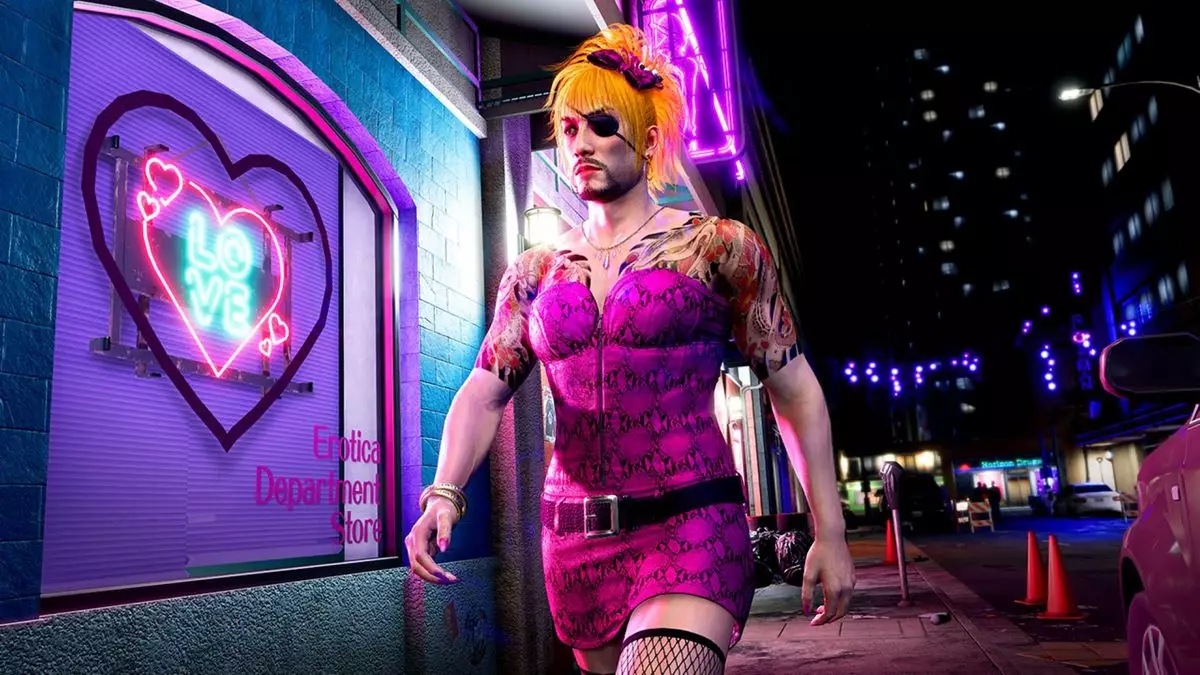The Yakuza franchise, now known as Like A Dragon, has built a vivid reputation for blending intricate narratives with offbeat mini-games and side activities. It is an embodiment of Sega’s cultural footprint, particularly evident in its quest to reminisce about classic arcade experiences. The upcoming title, Like A Dragon: Pirate Yakuza in Hawaii, stands as a testament to this tradition, offering fans an intriguing concoction of nostalgia, humor, and innovative gameplay elements.
Among the new additions, The Ocean Hunter emerges as a highlight. Originally an arcade staple when it debuted in 1998, this game evokes a sense of adventure and kinship with the aquatic realm, inviting players to hunt formidable sea creatures like sharks. It has remained confined to its arcade roots until now, marking a significant milestone in its resurrective journey. Developer RGG Studios’ commitment to accurately recreating the experience is commendable, showcasing their technical prowess and respect for gaming history.
Yutaka Ito, the technical lead, emphasized the challenges of bringing the Ocean Hunter cabinet to life, stating that the effort required a collective undertaking by numerous individuals. The mini-games embedded within the Yakuza universe are not mere side attractions; they serve as a rich nod to Sega’s illustrious arcade heritage, cleverly always demonstrating that fun lies in unexpected places.
What sets Yakuza apart is the sense of community and cultural interplay manifested through its gameplay. The games not only reference beloved Sega classics but also invite players to indulge in the zest for life that resonates with Japanese pop culture. Mini-games like burger delivery and dating simulations add layers of interactivity; they’re whimsical and eccentric alongside serious, character-driven narratives. This blend of contrasting elements keeps the franchise alive and relevant, continually engaging both old and new players.
Moreover, the return of karaoke is a nostalgic callback that reinforces the series’ identity. It symbolizes the carefree spirit that pervades the game while allowing players to engage in absurd musical interludes—an irreverent yet joyful experience that is almost synonymous with the Yakuza brand.
Looking ahead, Like A Dragon: Pirate Yakuza in Hawaii appears to strike a balance between revitalizing forgotten gems and innovating new gameplay experiences. RGG Studios isn’t merely reviving past concepts; they’re redefining how we perceive arcade history within modern gaming contexts.
As the video game community eagerly anticipates its release, this installment promises to encapsulate the essence of adventure, camaraderie, and nostalgia that fans have come to cherish. Ultimately, whether through hunting legendary marine life or belting out karaoke tunes, Like A Dragon continues to celebrate the rich tapestry of Sega’s legacy, ensuring that both nostalgia and innovation remain at the forefront of its gaming narrative.

